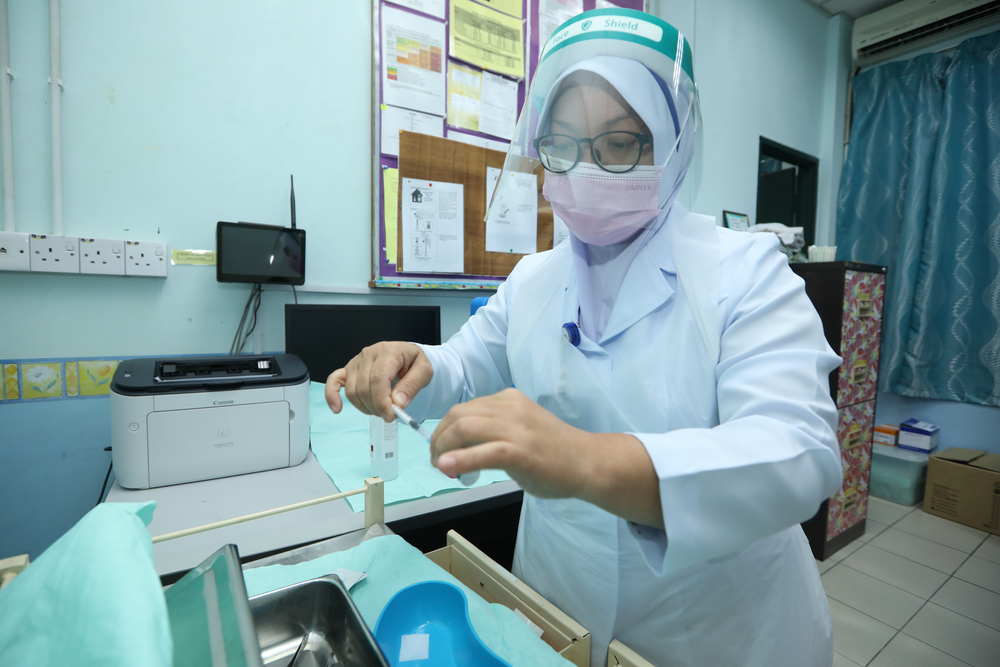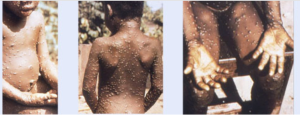The MOH has diverted nurses from specialist clinics to wards in hospitals nationwide. The only exception is Obstetrics and Gynaecology (O&G) and Paediatric department nurses.
The dire shortages of nurses and nursing graduates forced the MOH to make this decision. Medical assistants are expected to fill the void left by nurses in specialist clinics. The move is meant to deal with the shortage of manpower in hospital wards, especially since the influx of COVID-19 admissions recently.
Dealing With Manpower Shortage in Hospital Wards
It was revealed that the MOH planned to relocate ‘100%’ of nurses from specialist clinics, except for those in clinical specialties such as O&G and paediatrics. Vacancies left by these nurses were expected to be filled by assistant medical officers (PPP), healthcare assistants (PPK), administrative assistants (PT), or MySTEP personnel. It was also decided that the replacements did not have to be one-to-one based on the existing clinical and administrative tasks they are expected to carry out.
MySTEP is a government initiative that provides contract positions in ministries, government agencies, and government-linked companies.
Issues To Consider
Nurses who have spent an extended period of time in specialist clinics must undergo mentoring programmes to brush up on the clinical skills required to function smoothly in the hospital ward setting. The nursing division must monitor transitions from clinics to wards by submitting update reports every three months.
MOH also added that specialist nurses in wards can assist in the clinics on a scheduled basis if necessary. Nurses with health issues or who are on light duty can also function in wards by adjusting the tasks they receive to their health conditions.
Nurses involved need to understand their expected roles, as their scope of work remains unchanged despite promotions. They should prioritize clinical tasks over administrative duties. Medical assistants assigned to pre-hospital care, except in O&G and paediatrics, are now responsible for interfacility transfers. This enables nurses to concentrate on their tasks in the ward.
Nurses from the ophthalmology and otorhinolaryngology departments will also be included in the operating theatre (OT) schedules. The MOH intends to remove the outpatient department (OPD) services from hospitals. They would opt for a shift system instead, including clinic services.
Malaysian Medical Association (MMA) Supports MOH’s Move
The MMA has expressed support for MOH’s diversion of nurses from specialist clinics to hospital wards to mitigate the effects of nursing shortage. The MMA had previously highlighted the maldistribution of healthcare workers. MMA stated that MOH’s move could significantly reduce the tremendous workload in certain hospital wards.
MMA president Dr. Azizan Abdul Aziz stated, “We welcome this effort by the MOH and hope for its smooth implementation. We hope that the positions vacated as a result of the reassignments will be promptly filled to prevent any disruption to services.”
The move is not without challenges. The reassignment might inconvenience some specialist clinics more than others due to the different training of nurses and medical assistants. Medical assistants primarily assist, while nurses handle a wide range of tasks. These include attending to bedridden patients, conducting immunisations, and administering medication. Most medical assistants do not receive training for these tasks/procedures.
The MMA acknowledged these initial challenges. However, they voiced their support and confidence in the MOH’s ability to tackle the issues mentioned over time.
Call For Action
“We believe that data-driven decisions and real-time monitoring will be the way forward for effective planning of workforce placement. The MMA believes that increased efficiency and productivity can be achieved through a digital system enabling data-driven decisions,‘’ said Dr Azizan.
She also mentioned that digitalisation will be crucial for both immediate and future planning of public health care human resources in ensuring that healthcare services cater to community needs.
Dr Azizan also believes that planning healthcare services should respond to population needs rather than budget sizes or post numbers.














